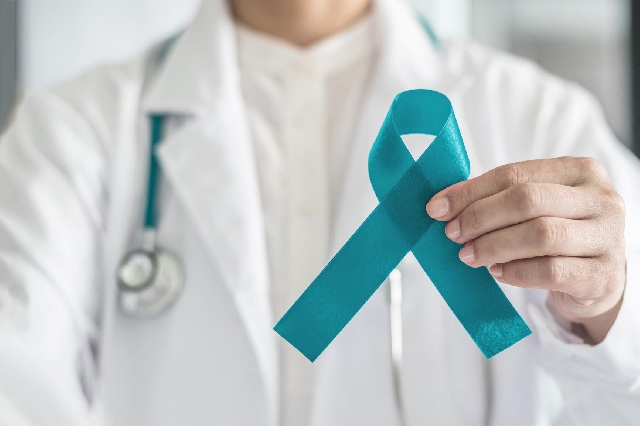Ghana losing too many young women to cervical cancer
 The Gynaecologist emphasised that getting a Pap smear screening and vaccination could save many women from the disease
The Gynaecologist emphasised that getting a Pap smear screening and vaccination could save many women from the disease
Dr. Promise Sefogah, General Secretary of the Society of Obstetricians and Gynaecologists of Ghana, has expressed concern about the increasing loss of many young women to cervical cancer in the country.
Dr. Sefogah told the Ghana News Agency in an interview that most cases are diagnosed at late stages, where very little can be done to save lives.
Cervical Cancer is the fourth most common cancer among women globally.
Dr Sefogah told the Ghana News Agency in an interview that most of the cases were diagnosed at late stages, where very little could be done to save lives.
Dr. Sefogah, who is also a Consultant Obstetrician Gynaecologist at SHAPE HEALTHCARE Specialist Medical Centre, refuted claims that some family planning methods cause cervical cancer.
He said: “For the record, Intrauterine Devices (IUDs) do not cause cervical cancer; rather, they are one of the effective ways of preventing unwanted pregnancy.”
IUDs, he explained, do not provide barrier protection. Therefore, if someone has an IUD and engages in unprotected sex with multiple partners, they are likely to be exposed to the human papillomavirus.
The Gynaecologist emphasised that getting a Pap smear screening and vaccination could save many women from the disease.
He said: “The good news about Cervical Cancer is that it can be prevented through vaccination. When we screen, we can detect the presence of the virus, and then interventions can be put in place.”
“For every woman, it is important to undergo pap smear screening every year. If you test negative, then we can recommend that you take the vaccine. Women need to be encouraged to get screened and vaccinated to save their lives,” he added.
Dr. Sefogah mentioned that despite the availability of an effective vaccine that could prevent cervical cancer, financial barriers to accessing the vaccines remained a challenge. Many women have abandoned vaccination due to the associated costs.
He called on the Government to eliminate the financial barriers to make the vaccines accessible and include them in the routine vaccination package in Ghana.
Dr. Hilda Mantebea Boye, President of the Pediatric Society of Ghana, emphasized the importance of vaccinating children before they become sexually active.
“For children, we encourage vaccination against the human papilloma virus so that from the age of nine years, they receive the necessary shots to protect them, significantly reducing their risk of infection.”
Dr. Boye, who also serves as a Maternal and Child Health advocate and a member of the Medical Women Association of Ghana, noted that despite the high death toll among women, not enough attention has been drawn to the situation.
“It is for this reason that we are engaging in advocacy through teaching and training across the country to raise awareness about the disease.“We also provide free screening for women in collaboration with selected hospitals, including Lester Ghana, and conduct awareness campaigns in schools and markets to educate young girls and mothers.”
Source: GNA
Trending News

Bryan Acheampong forms committee for viability of his NPP flagbearership bid
06:42
Parliament resumes today after a two-month recess
09:41
Gender Ministry opens childcare centre to support working mothers
14:58
V/R: Police 26 suspects over drug-related offences
19:40
Unemployed Allied Health Professionals threaten 'demo' over delayed gov't postings
11:30
Minority returns to Parliament despite earlier boycott threat
14:03
Ghana must always remain a nation governed by law, not by arbitrary power, says Bawumia amid Wontumi’s arrest and detention
15:23
Kasoa CBD decongestion exercise underway as traders protest demolition of roadside stalls
08:01
Health Minister launches #FP2030 to promote reproductive rights and access to contraception
12:50
Bawumia expresses concern over continuous detention of Wontumi
15:19



